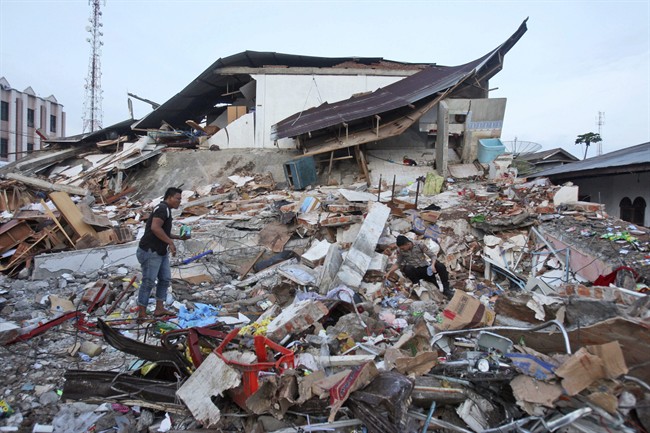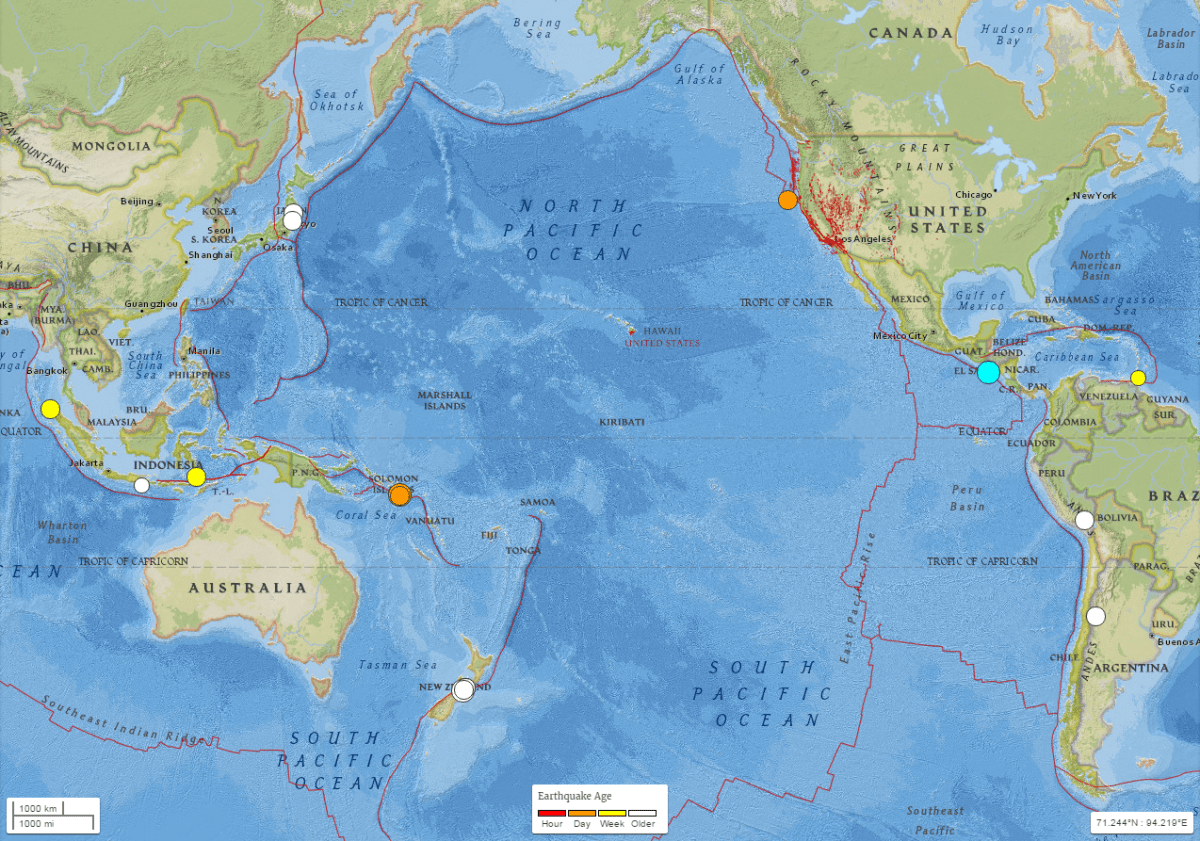With three large earthquakes recorded in the Ring of Fire region in the last two days, some may wonder whether this splurge in seismic activity means a quake could shake the Pacific Northwest.

Indonesia was struck with a 6.5 magnitude earthquake on Tuesday, Dec. 6. Then, on early Wednesday morning, another 6.5-magnitude quake hit about 150 kilometres off the coast of northern California. Finally on Thursday, a large 7.8-magnitude quake shook the Solomon Islands.
In total, there have been 15 earthquakes registering over a 5.7 magnitude in the last 30 days around the Ring of Fire – the seismic zone that circles the Pacific Ocean from the west coast of South America, up to Alaska and down to New Zealand.
But to earthquake experts, the timing is just a coincidence.
Dr. Simon Peacock, the dean of the Faculty of Science at UBC and professor of earth, ocean and atmospheric sciences, says there is no reason to think these past earthquakes indicate upcoming seismic activity near B.C.
“I think it is better to view these earthquakes as an important reminder that we live in earthquake country here in B.C. and we need to prepare for earthquakes, both as individuals and as a society,” Peacock said.
On average, there are 134 earthquakes measuring between a 6.0 and 6.9 magnitude each year, meaning one occurs about every other day. Larger earthquakes in the 7.0 to 7.9 range occur much less frequently at only 16 annually.
- Ontario takes action against chemical plant after Aamjiwnaang First Nation residents fell ill
- High benzene levels detected near Ontario First Nation for weeks, residents report sickness
- Enter at your own risk: New home security camera aims paintballs at intruders
- Beijing orders Apple to pull WhatsApp, Threads from its China app store
The big ones, which are recorded at 8.0 or higher, happen typically only once a year.
“Sometimes it seems like these things come in clusters,” says Simon Fraser University earth sciences department chair Brent Ward. “But most of the time they’re pretty random.”
“It’s probably a bit of coincidence that they happened at around the same time.”
Ward says there are rarely predictors to earthquakes. There has only ever been one quake that was predicted: in Haicheng, China in 1975.
“All we can do is prepare. People should have a plan, because they’re not going to be able to use their cellphones. Have a plan about where to meet and what to do in this situation, and have an earthquake kit,” Ward said.
The Insurance Bureau of Canada estimates a 9.0-magnitude earthquake 75 kilometres off the coast of Vancouver Island could cause damages of up to $75 billion.
That could include the collapse of bridges and buildings, the rupture of pipelines, damages to roads, power lines and other structures, and the outbreak of fires. A subsequent tsunami could cause more extensive damage and flooding.
A recent report from the Conference Board of Canada says a large-enough earthquake would overwhelm the Canadian economy, leading to financial contagion that would delay rebuilding and result in additional long-term economic loss.
But if an earthquake is going to happen, it’s not likely we’ll know about it before it’s too late.





Comments